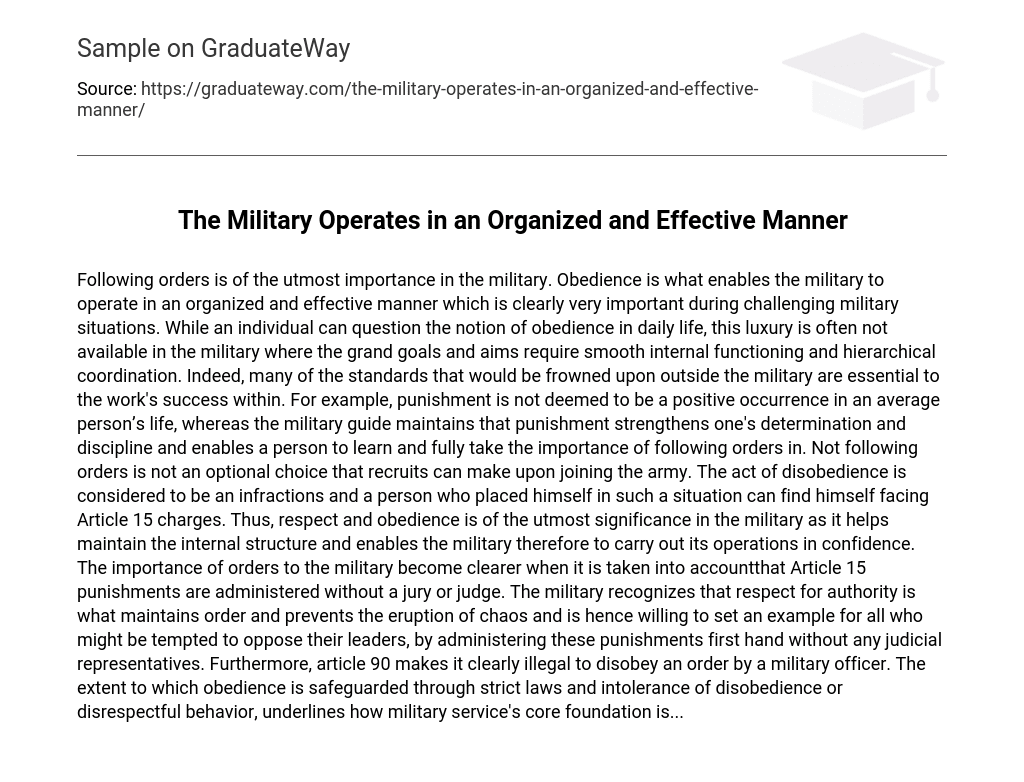It is vital to obey commands in the military.
The significance of obedience in the military cannot be overstated as it allows for organized and effective operations, especially in challenging situations. While questioning obedience may be acceptable in everyday life, those in the military do not have that luxury. The goals and coordination within the military require strict adherence to standards that may be frowned upon elsewhere. Punishment, usually seen as negative, is considered a way to enhance determination, discipline, and emphasize the importance of following orders. When recruits join the army, they are not given the option to disregard orders; disobedience is treated as an infraction that can result in facing Article 15 charges.
In the military, respect and obedience are crucial for maintaining internal structure and ensuring confident operations. The significance of orders becomes evident considering that Article 15 punishments are given without a jury or judge. The military acknowledges that respecting authority upholds order and prevents chaos, so they lead by example by administering these punishments themselves, without any judicial representatives. Moreover, article 90 explicitly makes disobeying a military officer’s order illegal. This emphasis on strict laws and zero tolerance for disobedience or disrespect highlights the fundamental basis of military service.





